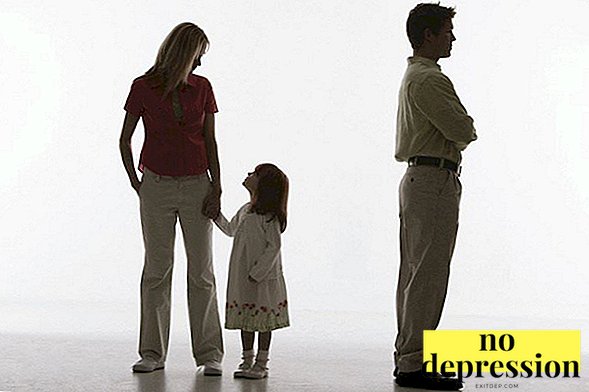The second hour, the speaker rushes around the stage, sings, juggles with a microphone, shows vivid presentations and retells a collection of anecdotes. And the public still remains deaf and already begins to openly snuffle in semi-slumber. What is the problem of the speaker? Bad vocals or last year's jokes? Easier - not so “catchy”. Expressive speech is not a single concept. Like all categories, it includes subspecies. But which ones and how to choose a suitable one?
What is “expressive speech”
Expressive speech is a style of verbal communication, including literacy, delivered voice, clear diction. Also to the features of this dialect include:
- words and expressions understandable for each listener;
- available the essence of the story;
- the presence of rhetorical figures (trope);
- inclusion of information confirming the main thesis;
- transparency, clarity, relevance.
In speech, the character of the narrator slips. It is not surprising that babysitters in kindergarten communicate easily with kids, but they do not understand anything in the speeches of lawyers. The auto mechanic will quietly keep up the conversation with the programmer, but will not be able to colorfully describe the plot of the art book in an attempt to interest and encourage reading.
There are exceptions to any rule. There are humanists who skillfully support the conversation about technology. There are architects who know a lot about psychology. However, much greater success can be expected if we choose for further development the kind of expressive speech that fits the personality type.
Varieties of expressive speech
Logical
The most strict kind. However, this does not mean that there are no advantages. Logically constructed speech allows you to transfer the maximum amount of information with minimal time. Logic is the best choice for listeners who do not like to wait and always take the bull by the horns. Among the characteristics of the category - availability:
- terms, professional vocabulary, abbreviations;
- laconic;
- clarity, persistence from the main topic;
- strict story structure;
- convincing argumentation, often - clarity, objectivity.
It may seem that logical texts are used only in scientific or business circles. This is a false proposition. It all depends on the thinking of the narrator. Speech logic is actively used even in everyday life, if its carrier likes to speak briefly and to the point. Despite the stereotype, in such a conversation there is no excessive dryness, as it includes relevant comparisons and epithets.
To suit: logic; those who do not like to "pour water", preferring to speak on the merits.
Emotional
For such a practice, the narrator does not have to be an actor, deafeningly to laugh or cry, to react violently to everything around. No, he can be quite calm and balanced. It’s one thing to feel an emotion and quite another to express it. A vivid demonstration of feelings is another kind of expressiveness. It will be discussed in more detail in one of the following sections of the article.
An emotional type of speaker seeks to control the feelings of the public or the interlocutor, rather than transmit them to himself. Although one does not exclude the other. For this kind of characteristic:
- appeal to morality, moral dogma;
- the urge to feel the situation, the idea;
- creating intrigue;
- affecting morally difficult topics;
- inclusion of unexpected semantic turns;
- the use of rhetorical questions;
- close communication with listeners, rapprochement with them.
This technique does not appeal to the mind, on the contrary, it seeks to blur it. The main purpose here is heart and soul. That is why this type of communication is often equated to manipulation. It is better to master it carefully, without connecting negative goals. Otherwise, the public reaction will be sharply negative.
To suit: individuals with an active lifestyle, leaders, natural psychologists.
Psychological
This species is very similar to the previous one. It also promotes the rapprochement of the speaker and his listeners. There is a tendency to manipulate, as in the emotional kind. However, the latter is intended to influence only the feelings that the audience already felt before. Psychology, on the other hand, influences momentary experiences, while also covering the mind, instincts. Signs:
- the use of psychological tricks;
- the inclusion of contrasts, unexpected effects, intrigue;
- more careful control of voice, facial expressions, movements;
- frequent improvisation;
- attentiveness to the reaction of the audience.
The psychological method works "here and now." Other species often need a pre-designed structure that will be exactly reproduced during the story. Psychology also requires impromptu.
To suit: connoisseurs of psychology; aspiring to influence; attentive, resourceful; those who can control their own emotions and their expression.
Expressive
The expressive type is closely related to charisma. The narrator, using this view, vividly and openly expresses his inner state. Or applies acting skills. In this method, attention is paid to:
- voice - loudness, intonation, timbre;
- active movements, gestures, facial expressions;
- dynamics - no monotony;
- confidence;
- the effect of surprise and subsequent pressure;
- continuous playback - a pause can cool the mood of the audience;
- pathetic gradation.
Speaking, the speaker “infects” the listeners with energy, pressure, enthusiasm. The secret of expression is the “10 percent” rule. If at least a tenth of the public, in which there are more than 10 people, leads to the tricks of the speaker, the rest of the crowd will also join the game, and unconsciously.
To suit: active, charismatic individuals; choleric, sanguine; actors by vocation.
Linguistic
Beautiful speech - another bait for the interlocutor. This technique catches its "correctness". There is no psychology, excessive emotions or extreme dryness. However, the person who masters this technique is very pleasant and interesting to listen to. Specificity of the form:
- high literacy;
- honed pronunciation - from stress to clarity;
- quiet submission of information;
- maintaining a strict speech structure;
- connectivity and consistency;
- politeness, greatness, mannerism.
To suit: linguists; those who prefer to abide by the rules appreciate adequate severity and dislike disorder.
Literary
Literary speech is real art. None of the subtypes of expressiveness has such artistic saturation. It is a combination of reality and illusion, allegorical reality. Its features include:
- an abundance of rhetorical figures (epithets, metaphors, hyperboles, etc.);
- figurative, figurative sense;
- veiled overtones;
- the use of quotations, aphorisms, sayings;
- poem (sometimes);
- rich lexicon.
Partially literary type is associated with linguistic - the latter helps verbally transfer images. In general, each type of speech is somehow related to the others, but not identical.
To suit: writers, book lovers, art lovers, dreamers; those who prefer imagery, love puzzles.
Humorous
This view is divided into the actual humor and satire. Each subspecies has its own signs.
| Humor | Satire |
|---|---|
| Ease of feeding | Meaning |
| Good nature | Negative implication, ridicule, criticism |
| Openness | Veiling |
| Periodic use for retreat, distraction or rest | Use throughout the course of speech as the basis of the story. |
| Versatility in use | Situational limitations |
Both types of comic require a lively mind, observation. Speakers who have chosen this particular development path should be careful. Relevance in this case is particularly important. Satire cannot be used at many events. It is undesirable for humor to be more than a third of the whole story. The exception is the performances of comedians.
To suit: sanguine persons, optimists, critics; fun, charismatic people; those who have quick wit and ingenuity.
The expressiveness of speech is rarely given to one person at once in several forms. Much more often there are situations when the speaker masters the only type of expressive speech. And it turns out to be enough for the public to burst into applause. Nevertheless, striving for a skillful combination of these varieties is commendable. However, there is a measure in everything: one mastered style is good, two is excellent, three is masterpiece, but four are already complete chaos.



